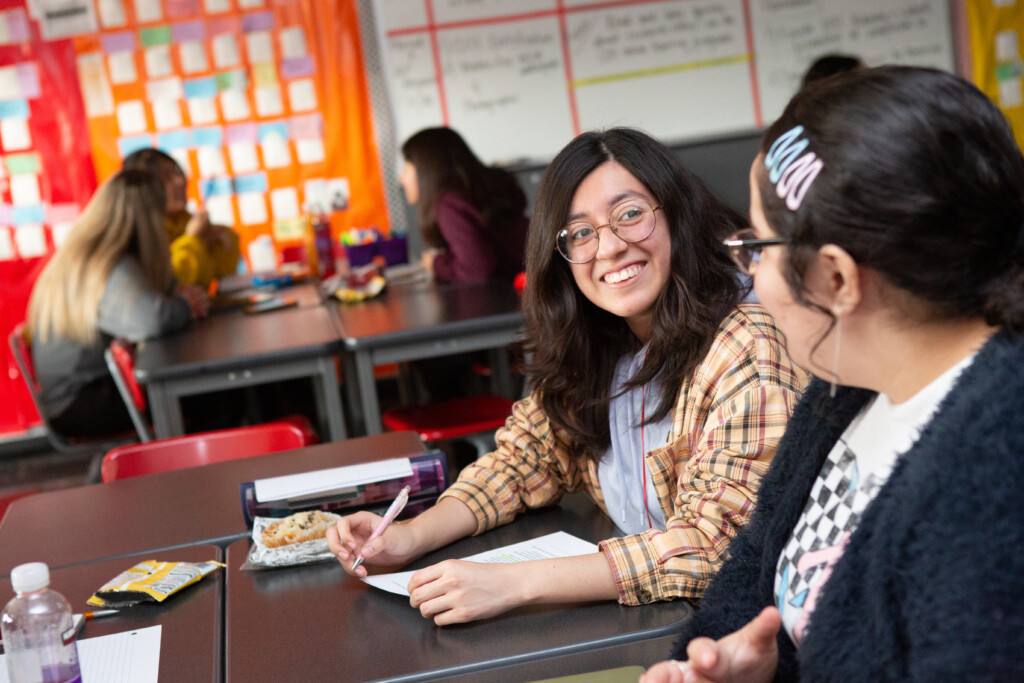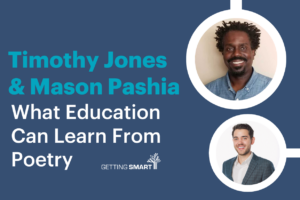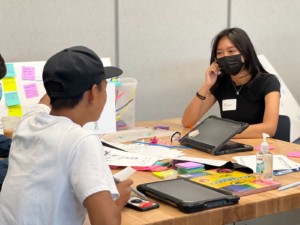Citizenship Skills Support Durable Pathways
Key Points
-
Organizations that can integrate citizenship skills into their pathways will support both a robust and well-informed workplace and vibrant communities.
-
We all have a role to play in helping our students better parse the growing landscape of misinformation, privacy and ownership.

The pandemic, connected economic challenges, lack of well-prepared employees, significant student debt, unfinished college degrees and continued inequitable access to quality careers incentivized governments, foundations and educational institutions to rethink viable pathways for all learners.
Moving the needle requires unbundled learning, systems support, new learning models, credentialing, accelerated and personalized learning experiences and larger systems and policy changes. The goal of this initiative is to ensure that every K-12 learner has access to a clear pathway towards a family-sustaining wage and every employer has access to highly-skilled employees. All of this is important for the long-term economic viability of our nation and the world at large. However, as we drive towards economic success for both the employer and employee, organizations that can integrate citizenship skills into their pathways will support both a robust and well-informed workplace and vibrant communities.
As Baratunde, host of How To Citizen Podcast, said on an episode of the Getting Smart Podcast, “Schools are training grounds for how we show up. We hold onto principles, ideals, a sense of purpose that can shift with the changes of the world.” Today, citizenship demands more from us than ever before. If we want to continue to build a strong democratic republic where the intentions matter and every person can participate, we need to deeply embed these core citizenship skills into each new pathway. A few examples of essential citizenship skills are digital literacy, understanding systems, storytelling and civic dialogue.
Digital Literacy
The massive growth of misinformation spread via social media has made it more difficult to govern and be governed at the local, state and federal level. While some funding provided schools and districts with incentives to build-out core citizenship literacy over the last twenty years, the resources are much smaller than those of other initiatives – such as math and literacy. That being said, one place where resources do exist is in digital literacy.
This particular type of citizenship is a race against the clock. New technologies like deepfakes and generative ai are already challenging our level of awareness and ability to trace things back to a source. Young people must be instilled with a foolproof barometer for truth as they navigate the challenging landscape of information, propaganda and content. Sites like ProCon.org are leading the charge of creating trusted sources for big topics: “through our website, ProCon.org, we serve as a non-biased information source for our users. We present sourced pros and cons of debatable issues, as well as a host of reference information relevant to those issues, thoroughly researched and compiled by our research staff and editors.”
Richard Culatta identifies and outlines the following five traits of a “good digital citizen” as:
- Be balanced: understand when and how much tech use is healthy
- Stay informed: discern between true and false information
- Be inclusive: treat others with respect and kindness online
- Be engaged: use tech to strengthen family relationships and community connections
- Stay alert: exercise caution and create safe digital spaces for others
We all have a role to play in helping our students better parse the growing landscape of misinformation, privacy and ownership.
Understanding Systems
Well-informed citizens support a functioning democracy which leads to strong economic growth. Instability, divisiveness, and civic illiteracy does the opposite. Non-partisan approaches will increase success rates. Organizations such as iCivics (which has launched Civix Now) , Facing History & Ourselves, Mikva Challenge, Educating for American Democracy, Thinking Nation and Institute for Citizens & Scholars (launched by ETS) focus on inquiry, original source documents, and discussion. These initiatives focus on both information and design. Education for American Democracy is a partnership between the Harvard Ethics Center and iCivics which centers on seven themes and five design challenges. Many of these programs facilitate deep inquiry and thoughtful questioning, core requirements for the vast complexity of our future.
The education and employment ecosystem is filled with important dialogue around helping every learner get to a rewarding career through a variety of pathways.
Nate McClennen & Mason Pashia
Storytelling
Time and time again young people demonstrate new possibilities. Through movement building and a dedication to equity and inclusion, they have come to understand the myriad ways in which our record of history is oppressive and flawed. These young people often lead the charge on interrogating history to better reflect the true experiences and evaluate the core learnings of our best. UnTextbooked is a great podcast that demonstrates how students can unpack history and better engage with the materials that propel and perpetuate stories. Part of this narrative is telling the story of peace and global citizenship.
Civil Dialogue
Unfortunately, students of today will be shouldering the burden of communication. Not only with the broader national scene, but also with their communities and families. This creates the need for civil dialogue. Initiatives like 100 Days of Conversation provide students and communities with the tools necessary to host their own local conversations about community feelings and futures. Imagine these spaces as catalysts for establishing organized pathways through and by communities.
Many communities host recurring events that model civic dialogue. American Public Square in Kansas City is a great example for young people to learn how to disagree respectfully, articulate an argument and hold complex challenges alongside nuanced answers. Organizations like the Weave Project out of the Aspen Institute are building capacity in our culture to build deep relationships focused on community success rather than simply individual achievement.
Conclusion
The education and employment ecosystem is filled with important dialogue around helping every learner get to a rewarding career through a variety of pathways. This is really important work. However, we must ensure that the skills of digital literacy, civic understanding, storytelling and civic dialogue remain deeply embedded alongside the burgeoning opportunities provided by community partnerships and CTE programs. Learners with these skills will not only create more possible futures for themselves, but also more durable, sustainable and thriving communities and economies.

Nate McClennen





0 Comments
Leave a Comment
Your email address will not be published. All fields are required.